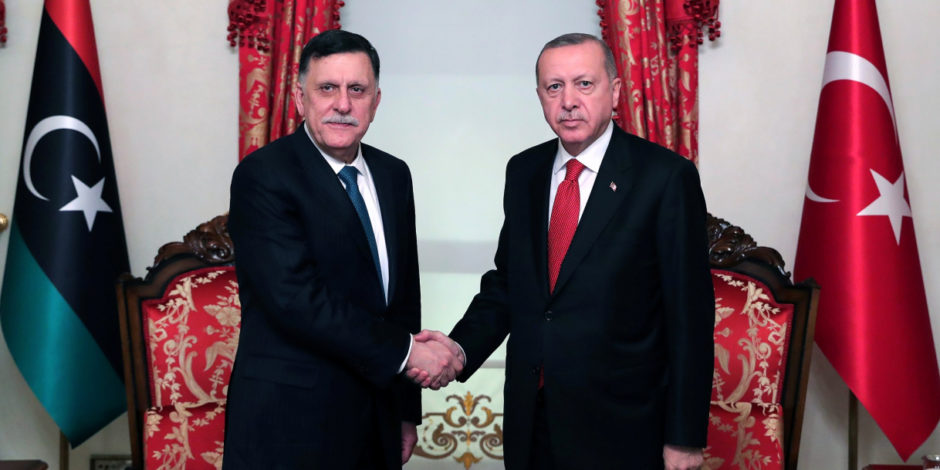
The decision from Libya’s Government of National Accord (GNA) to sign a deal on a maritime border with Turkey has sparked condemnation from other east Mediterranean states.
Greece, for instance, has voiced concerns about the head of the GNA’s legitimacy, moving towards Egypt’s position. Cairo supports the Libyan National Army (LNA), which is fighting a war against the GNA.
Turkey has a long-running dispute with Greece and Cyprus on borders. Turkey is carrying out what are widely considered to be internationally illegal exploration in Cypriot waters, in the east Mediterranean Sea, in areas that may hold similar gas resources to those discovered offshore Israel and Egypt.
The GNA is on the back foot in Libya and is besieged in Tripoli by the LNA, which is affiliated with the House of Representatives (HoR) and eastern cities such as Benghazi. One of the GNA’s few allies is Turkey, which has provided support including materiel and armed drones.
Turkish President Recep Tayyip Erdoğan welcomed the head of the GNA Fayez al-Serraj in the Dolmabahçe Palace last week and two agreements were signed. These were on security and military co-operation and marine jurisdictions.
The statement from Turkey said these were intended to maintain the rights of the two states in line with international law. The head of Libya’s Taghyeer Party Guma El-Gamaty said the agreement returned the ownership of 39,000 square km of the offshore to the country, in comments on Twitter, saying this held substantial gas reserves.
A statement from Greek Foreign Ministry spokesman Alexandros Yennimatas made it clear there was a disagreement on such a line. “Such an action would be a flagrant violation of the International Law of the Sea and would produce no legal effect. Moreover, such an action would not be consistent with the principle of good neighbourliness, which should govern relations between neighbouring states.”
The disagreement between Greece and Turkey continued to deteriorate in the following days. Speaking at the opening ceremony of the Trans-Anatolian Pipeline (TANAP), Erdoğan defended the deal with Libya and Turkey’s exploration in the east Mediterranean.
Greece’s Deputy Minister for Energy and the Environment Dimitris Oikonomou pulled out of the ceremony in response, the Greek Foreign Ministry said, as “practical condemnation of these statements”.
Libya was not immune from Greek criticism. Greece’s Minister of Foreign Affairs Nikos Dendias held talks with his Egyptian counterpart Sameh Shoukry on December 1. “We both have the impression, first of all, that Serraj probably lacks the necessary legitimacy to sign these memorandums. But in any case, they function as destabilising factors for the wider region.”
Egypt and Greece agreed to accelerate discussions on their exclusive economic zones (EEZ).
Reports in the Greek press have said the government has called on the Libyan ambassador to present details on the Turkish agreement by December 5 or be expelled. While Greece continues to see the GNA as Libya’s government, in line with the view of the United Nations, it is clear that the maritime deal with Turkey has put pressure on this.
